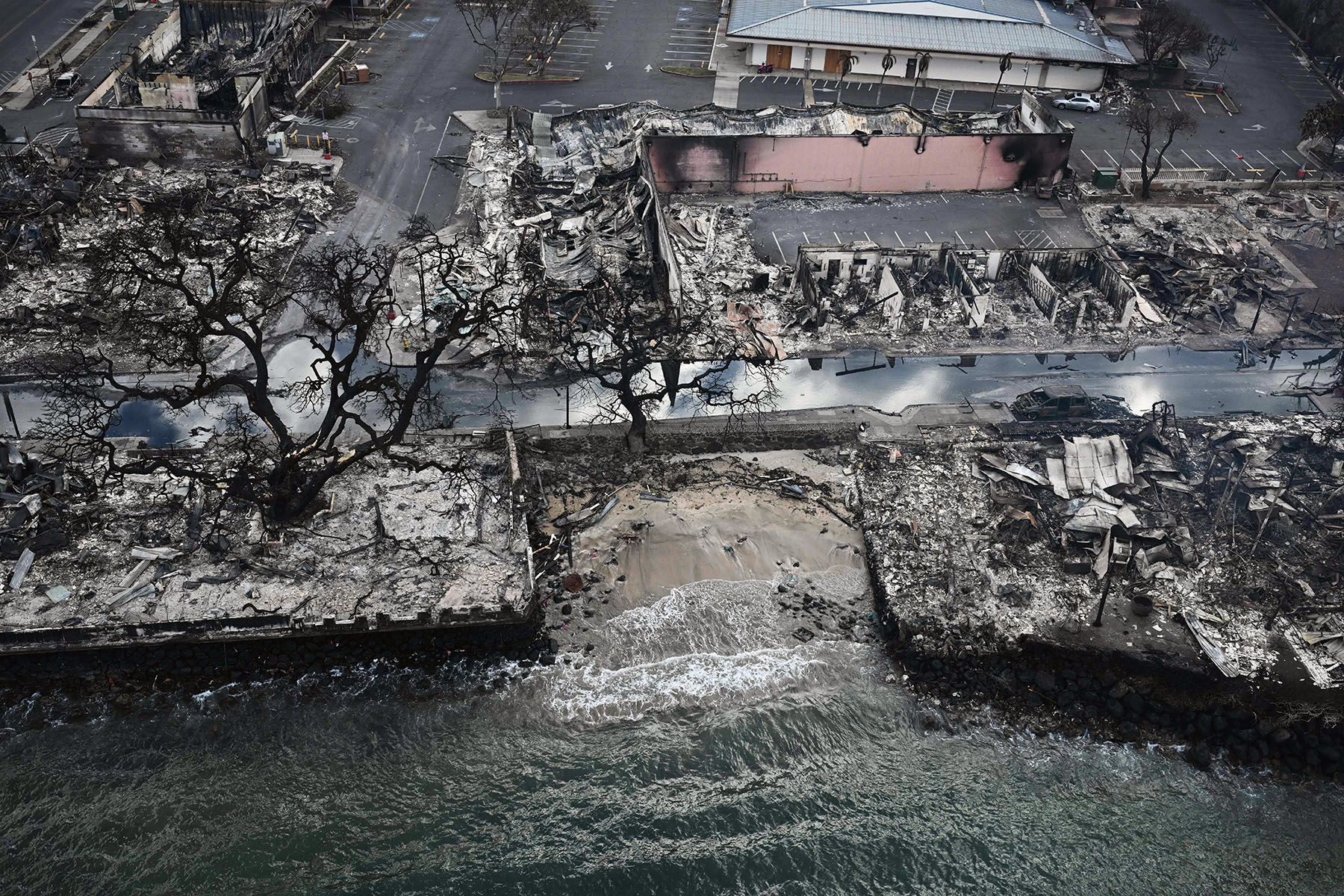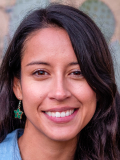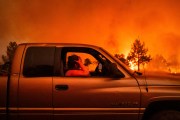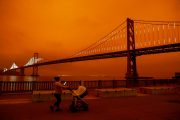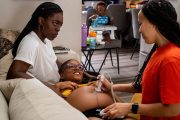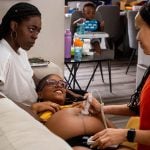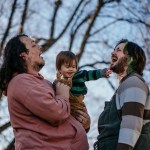Your trusted source for contextualizing the news. Sign up for our daily newsletter.
After the scale of destruction caused by the wildfires in Maui came into focus Wednesday, the team from Healthy Mothers Healthy Babies, a Hawaii-based reproductive health nonprofit, jumped into action.
They set up a 24-hour hotline to assist pregnant and postpartum people displaced by the fires, and are sending breast pumps, infant formula, diapers and many other supplies to the island from Oahu, where they are based. On Thursday, six members of their team including nurses, a midwife and a mental health provider traveled to Maui to staff a mobile health clinic in a converted van.
Historically, the needs of pregnant and postpartum people have been overlooked in disasters and emergency response, leaving grassroots and mutual aid groups to fill in the gaps for their communities.
Nimble organizations like the Healthy Mothers Healthy Babies, which has a team of all women, most of whom are people of color and moms, are springing into action, while the state waits for emergency relief and volunteers to arrive.
“Often times people in government are not people who have been pregnant or given birth so it is not on the top of their list the same way that we saw with the COVID response,” said Tanya Smith-Johnson, a doula, midwife and policy director for Healthy Mothers Healthy Babies. It’s why they built their mobile health clinics to reach pregnant people who were scared to leave their house during COVID. “It is always the same when things happen. Who is thinking about women and children and families and what their needs are? It takes people who’ve done it, who care about people, who have birthed,” she said.
-
Read Next:
As of Friday morning, 55 people have been confirmed dead, though that death toll is expected to grow in the coming days and thousands have been displaced by the wildfires.
The 19th spoke with Smith-Johnson to understand the current needs of pregnant and postpartum people in Maui, what services are available to people seeking assistance, and what the rest of us can do to help.
This interview has been edited for length and clarity.
Jessica Kutz: What are the primary concerns that you have for people who are pregnant or have recently given birth with the Maui wildfires?
Tanya Smith-Johnson: I’m a doula and midwife, so as a clinician some of my main concerns are people who are probably due, or in the midst of being due, and whether or not they’ll be able to access the hospital to give birth there.
The hospital is completely bombarded with burn victims. Maui general is already small; it is already not an advanced level hospital. People typically need to get medevaced for more serious things. I can’t even imagine what that means in a moment like this — I can’t even imagine what that means for people who are in labor and birthing.
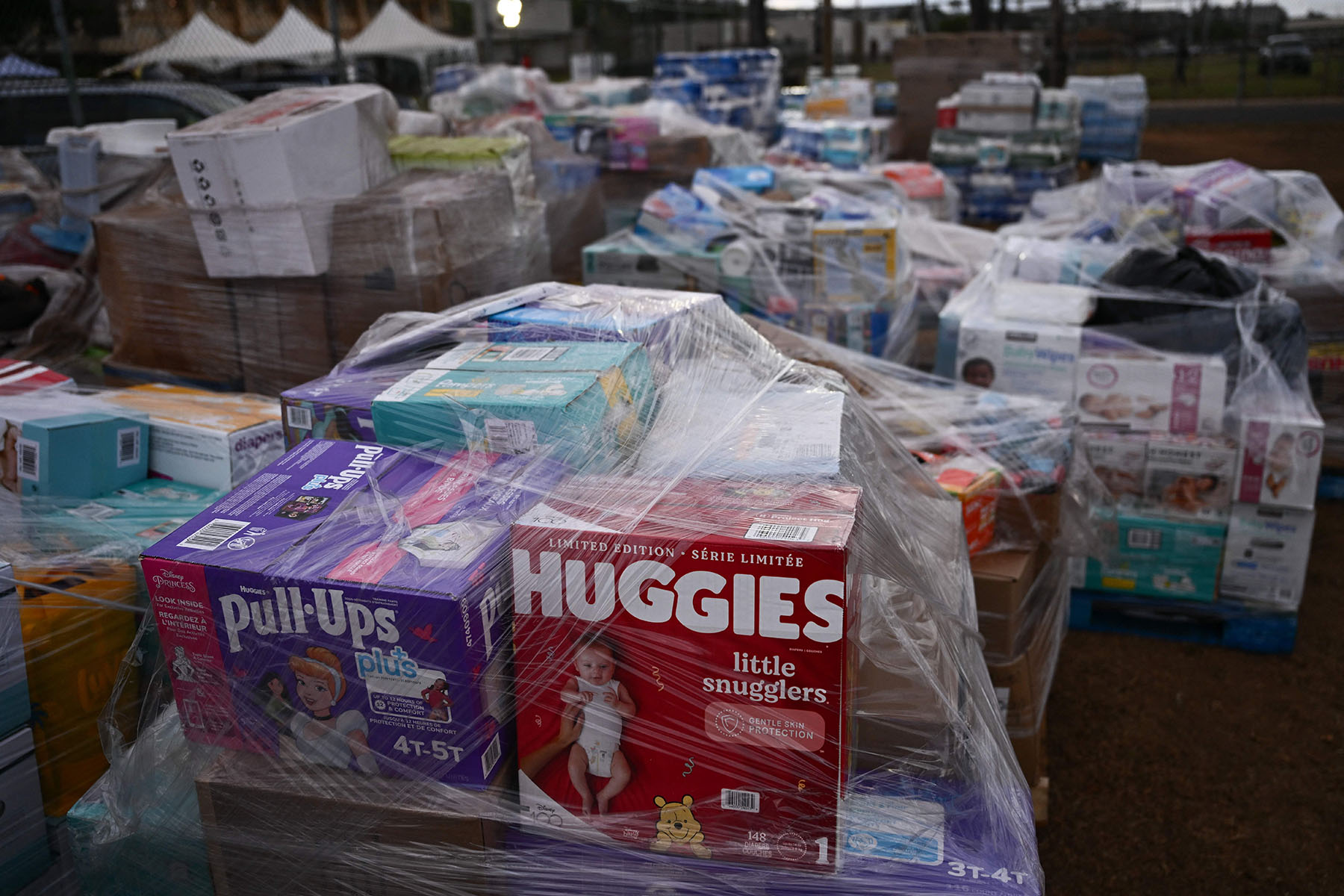
Also it was already an issue on Maui because a lot of OB-GYN practices had stopped taking clients. They were losing OB-GYNs on the island even before this happened. People were losing their provider or didn’t have care.
It is almost like the worst perfect storm of all these things intersecting and compounding to make it unimaginable. I just don’t know what hospital beds look like. What is the plan for birthing people? How are people even getting there if their houses are gone and their roads are closed, if transportation isn’t available?
As far as people in the midst of their postpartum — if anything is going to happen postpartum it usually happens six weeks after having a baby. Are they able to see a provider? Is that a priority with all the other things happening to folks on the island? Same with newborns or small babies.
Environmentally, what is going on with the air quality? What does that mean for folks who have chronic illness on top of being pregnant or postpartum?
What services and supplies are your organization getting out to people?
We are taking Haakaa breast pumps for folks that you can use without electricity and pump manually. We are taking storage containers and ice packs, all of those things for people to keep breast milk on hand. Carriers as well, so people can wear their babies as they just figure out what is going on.
We took donations for baby items, bottles, chest pads and menstrual products as well, because postpartum people are still bleeding. We partnered with the diaper bank and supplied diapers, and formula for people who aren’t breastfeeding. Right now it is complicated, so at least they have a way to feed babies. Also bottled water, to make formula.
We also have a 24-hour telehealth line that people can call into.
We are also shipping our mobile van called “Mana Mama.” We built it ourselves and outfitted it. We took the seats out and it has cabinets, an exam table and a little portable toilet and labs set up. We can drive to people and they can come in the van.
That is why we are taking it over to Maui to be able to do all the same things there. If there is someone who calls or reaches out to say hey we have a pregnant mom that needs to be seen for example, we can go there. The plan is also to see if any of the shelters need anything.
-
Read Next:
Our team is a multidisciplinary team, so we have a clinical component and all of these wraparound services. We have a nurse practitioner, and she’ll be going because she can see pregnant and birthing people, but also children and the whole family and she can prescribe medicine. We do support people in abortion as well. Our nurse practitioner can do medical abortions and prescribe the medication. So we can see people who are in the midst of that situation or who are having a miscarriage who need support too.
It is pretty dope and amazing.
One of our midwives will also be going over, as well as two nurses and one of our mental health professionals. Our midwives and nurses are lactation consultants who can do lactation visits as well. (In total there will be six people traveling to Maui.) The rest of the team will be staying back to take care of the clients and manning the 24-hour hotline for the folks that will be there on the ground.
We are a tiny but mighty team doing great and amazing work, and I think oftentimes people think we are larger than we are. We do all the things. We are all wearing multiple hats.
What advice would you give to someone who is pregnant or postpartum and has been displaced or is currently in an evacuation center?
It is important to advocate for what you need. I know in moments like this it is extremely stressful, and it is easy to freeze and be so overwhelmed we don’t know the actionable steps we need to take care of ourselves. I’m hoping folks still take care of themselves and don’t let that part of it fall off in the midst of everything else.
Please reach out to Healthy Mothers Healthy Babies, we have all the things a pregnant or postpartum person may need, and if we don’t do it ourselves, we have partners that we can tell you where to go. We are a resource hub, and we hope people take advantage of that.
If you are displaced, reach out to us so we can figure out what options look like in terms of shelter. Or if you need diapers or to see a lactation specialist, or to see one of our midwives or care providers, we can come to you with our van and lessen that burden. Tell us and we got you and we will figure it out and help you. That is what we are here for and waiting to do. Please reach out using our telehealth line.
To reach Healthy Mothers Healthy Babies, which is currently staffed 24/7 in the wake of the Maui wildfires, you can call 808-737-5805 or send an email to [email protected] or by visiting their website at www.HMHB-Hawaii.org
How to help and support Maui wildfire victims
In addition to supporting Healthy Mothers Healthy Babies, Smith-Johnson recommends reaching out to the following community-based organizations if you are either in need of assistance or would like to offer a donation.
- The Maui Strong Fund: Accepts donations for the Maui Wildfires
- The Council for Native Hawaiian Advancement: Accepts supplies and monetary donations for the Maui wildfires
- Ma’i Movement Hawai’i: Works to end period poverty and is collecting menstrual supplies
- Kalauokekahuli: Provides prenatal and postpartum services to Native Hawaiians and Pacific Islanders.
- Pacific Birth Collective: A Maui-based collective that is both helping impacted pregnant people and accepting donations.
